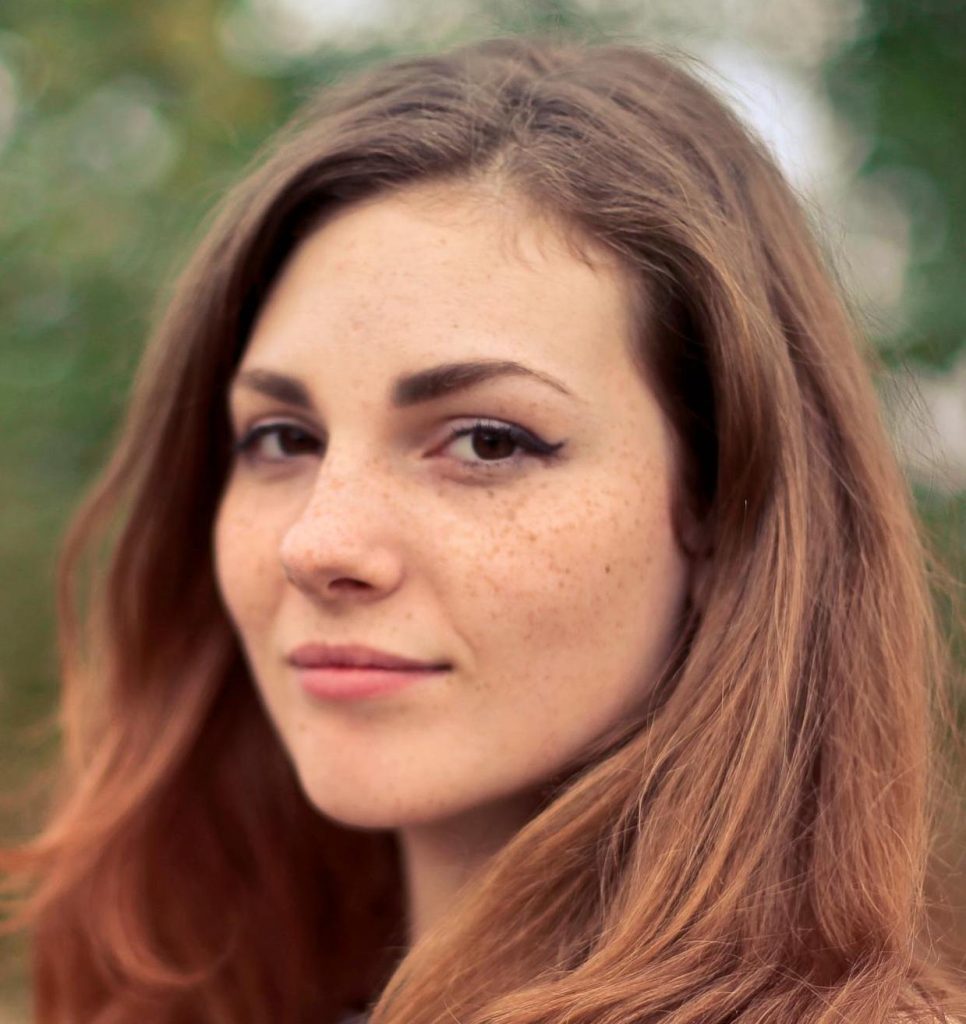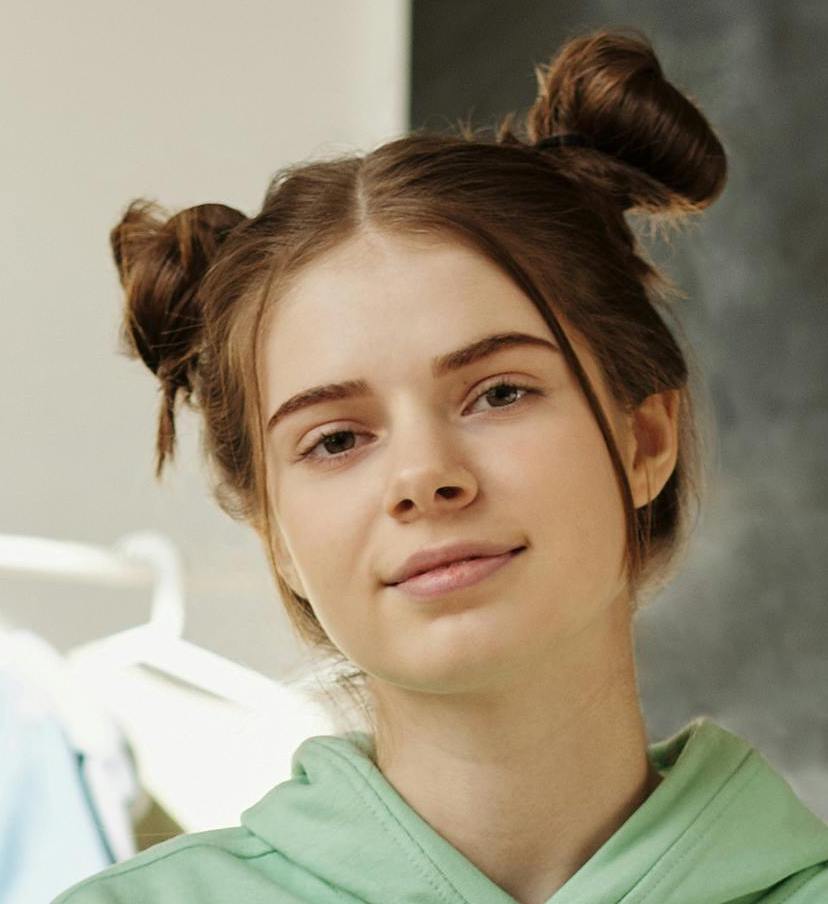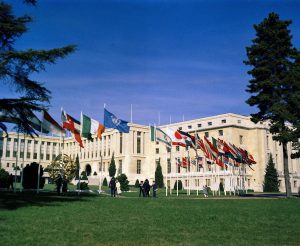3.1 Die Kindheit

Lektionsüberblick
With this lesson, you can start working on your origin story. That means, we will talk about where we were born, where we grew up, what our family looks like. We will also talk about typical childhood activities and outings. In the end, you will be able to 1) talk about the start of your life, 2) talk about early childhood, and 3) say what your favorite childhood outings and activities were.
1) Meine Familie
Read about Sofia, Kaja, and Leo and then answer the comprehension questions that follow.
 Hallo! Ich heiße Sofia Müller und ich bin 20 Jahre alt. Ich wurde am 17. Mai 2004 in Hannover geboren. Ich bin in Hannover und in Laramie aufgewachsen. Ich war fünf Jahre alt, als wir in die USA gezogen sind. Ich habe eine kleine Familie. Ich habe eine Mutter, Anika, einen Vater, Stefan, und einen Bruder Noah, der vier Jahre älter ist als ich. Wir haben auch eine Katze Mia. Ich studiere Philosophie im Hauptfach und Deutsch im Nebenfach. Ich habe eine Kusine und drei Cousins. Da ich in den USA lebe, sind wir nicht zusammen aufgewachsen, aber wir machen einen Familientreff jedes Jahr in Deutschland. Hallo! Ich heiße Sofia Müller und ich bin 20 Jahre alt. Ich wurde am 17. Mai 2004 in Hannover geboren. Ich bin in Hannover und in Laramie aufgewachsen. Ich war fünf Jahre alt, als wir in die USA gezogen sind. Ich habe eine kleine Familie. Ich habe eine Mutter, Anika, einen Vater, Stefan, und einen Bruder Noah, der vier Jahre älter ist als ich. Wir haben auch eine Katze Mia. Ich studiere Philosophie im Hauptfach und Deutsch im Nebenfach. Ich habe eine Kusine und drei Cousins. Da ich in den USA lebe, sind wir nicht zusammen aufgewachsen, aber wir machen einen Familientreff jedes Jahr in Deutschland. |
 Servus! Ich heiße Kaja Müller und ich bin 16 Jahre alt. Ich wurde am 3. Januar 2008 in Ludwigsburg geboren. Ich bin dort aufgewachsen und wir wohnen noch dort. Ich habe eine mittelgroße Familie. Ich war drei Jahre alt, als meine Mutter gestorben ist. Mein Vater, Markus, hat seine zweite Frau, meine Stiefmutter Nuri, geheiratet, als ich sechs war. Sie haben im gleichen Jahr meinen kleinen Bruder Adem bekommen. Ich habe auch einen älteren Stiefbruder Tekin. Er ist fünf Jahre älter als ich. Ich freue mich immer auf unseren jährlichen Familientreff. Ich habe nur eine Kusine, Sofia, aber zwei Brüder und einen Cousin. Ich habe Sofia besonders gern. Ihr Vater ist der Bruder meines Vaters. Also sind wir Kusinen väterlicherseits. Servus! Ich heiße Kaja Müller und ich bin 16 Jahre alt. Ich wurde am 3. Januar 2008 in Ludwigsburg geboren. Ich bin dort aufgewachsen und wir wohnen noch dort. Ich habe eine mittelgroße Familie. Ich war drei Jahre alt, als meine Mutter gestorben ist. Mein Vater, Markus, hat seine zweite Frau, meine Stiefmutter Nuri, geheiratet, als ich sechs war. Sie haben im gleichen Jahr meinen kleinen Bruder Adem bekommen. Ich habe auch einen älteren Stiefbruder Tekin. Er ist fünf Jahre älter als ich. Ich freue mich immer auf unseren jährlichen Familientreff. Ich habe nur eine Kusine, Sofia, aber zwei Brüder und einen Cousin. Ich habe Sofia besonders gern. Ihr Vater ist der Bruder meines Vaters. Also sind wir Kusinen väterlicherseits. |
Let’s practice how to talk about where and when we were born and where we grew up.
Jetzt bist du dran!
Wo und wann wurdest du geboren? Wie groß ist deine Familie? Following the models above, write about your origins, where and when you were born, and the size of your family. You can find more family vocabulary here and here. Be sure to check the models for spelling and structures.
When you are done, practice your origin story until it flows like natural conversation. Then record yourself in your audio journal. As always, you are more than welcome to meet with a classmate and do your recordings together!
Deutsch IRL – Engage with authentic German content!
Geschwister: Wie Brüder und Schwestern sich beeinflussen, a 6.5 minute animated video on the long-term influences of sibling relationships.
Fünf Erziehungsstile und ihre Auswirkungen, a 6.5 minute animated video on the long-term influences of different parenting styles.
Kindheit in der DDR, a 58 minute documentary on childhood in the GDR, the German Democratic Republic.
2) Kindheitswörter
Let’s practice.
Learn more about the Germans and Kuscheltiere in the linked video and online exercises from the Goethe Institut. If you’ve already watched the video in class, the related online exercises are different from the in-class ones.
Jetzt bist du dran!
Wie war deine frühe Kindheit? Was hast du das Laufen und das Sprechen gelernt? Warst du in einer Tagespflege? Was waren dein Lieblingsspielzeug? Hast du immer noch dein Kuscheltier? Using the modeled language from the activity, write about your early childhood. When did you learn to walk and talk? Did you go to daycare? What were your favorite toys? Do you still have your stuffy? These structures can be tricky. Be sure to use the sentences from the presentation above and only change out specific content (i.e. your age).
When you are done, practice this edition to your origin story until it flows like natural conversation. Then record yourself in your audio journal.
Genf im Blickpunkt

Genf ist die zweitgrößte Stadt der Schweiz. In Genf steht der Palais des Nations. Dort arbeitet der europäische Hauptsitz der Vereinten Nationen. Mehr als 8.000 Mitarbeiterinnen und Mitarbeiter aus über 100 Ländern sind hier tätig. Besucher können das Gebäude besichtigen und die berühmte „Assemblée Hall“ sehen.
Geneva is Switzerland’s second-largest city. Geneva is home to the Palais des Nations, the European headquarters of the United Nations. More than 8,000 employees from over 100 countries work here. Visitors can tour the building and see the famous Assemblée Hall.
3) Ausflüge und Aktivitäten
There are lots of things to see and do for the first time, when you are little. The following presentation introduces you to some typical early childhood outings (Ausflüge) and activities (Aktivitäten). Which ones resonate with you? Look through each slide and be sure to listen and repeat what you hear.
Let’s practice.
Jetzt bist du dran!
Welche Ausflüge und Aktivitäten hast du als Kleinkind gemacht? What outings and activities did you do as a toddler? Answer the question in your written journal, using the words and phrases in the presentation as you model.
When you are done, practice this edition to your origin story until it flows like natural conversation. Then record yourself in your audio journal.
Deutsch IRL
| Want to see more great playgrounds? Check out these top 10 lists! | Matschhosen-Video
Most children in German-speaking (and other, especially northern, European) countries have a set of Matschhose – waterproof pants made specifically so that they can play on the playground, whether it is wet or dry. Learn more about Matschhosen in this video from arte and the accompanying activities. |
Here are some additional authentic German sources:
|
|
Before we wrap up this lesson, let’s read two more childhood stories and look more explicitly about the verbs used to describe the past.
Jetzt kombinieren!
Erzähl mal von deiner Kindheit! Imaging you are having a conversation with a potential new friend at the start of your study abroad program in Switzerland. This potential new friend (give them a name!) wants to know all about your childhood. They ask, Wie war deine Kindheit? What do you tell? Write out your response to this question in your journal, using the sentences you have read and heard in this lesson as models for what you write. As always, check your sentences against the models for spelling and structures.
When you are done, practice your response until it feels relatively natural. Then record yourself giving your response in your audio journal. As always, you are more than welcome to meet with a classmate and do your recordings together!

Media Attributions
- Geschwister: Wie Brüder und Schwestern sich beeinflussen, from Sprouts Deutschland licensed by CC BY 4.0 International license.
- Fünf Erziehungsstile und ihre Auswirkungen, from Sprouts Deutschland licensed by CC BY 4.0 International license.
- Kindheit in der DDR, from Staatsbürgerkunde licensed by CC BY 4.0 International license.
Media Attributions
- 2030-2040 ch banner reduced size
- sofia mueller
- kaja mueller
- leo schmidt
- Photo of Palais de Nations, Flickr, CC BY-NC-ND 2.0

